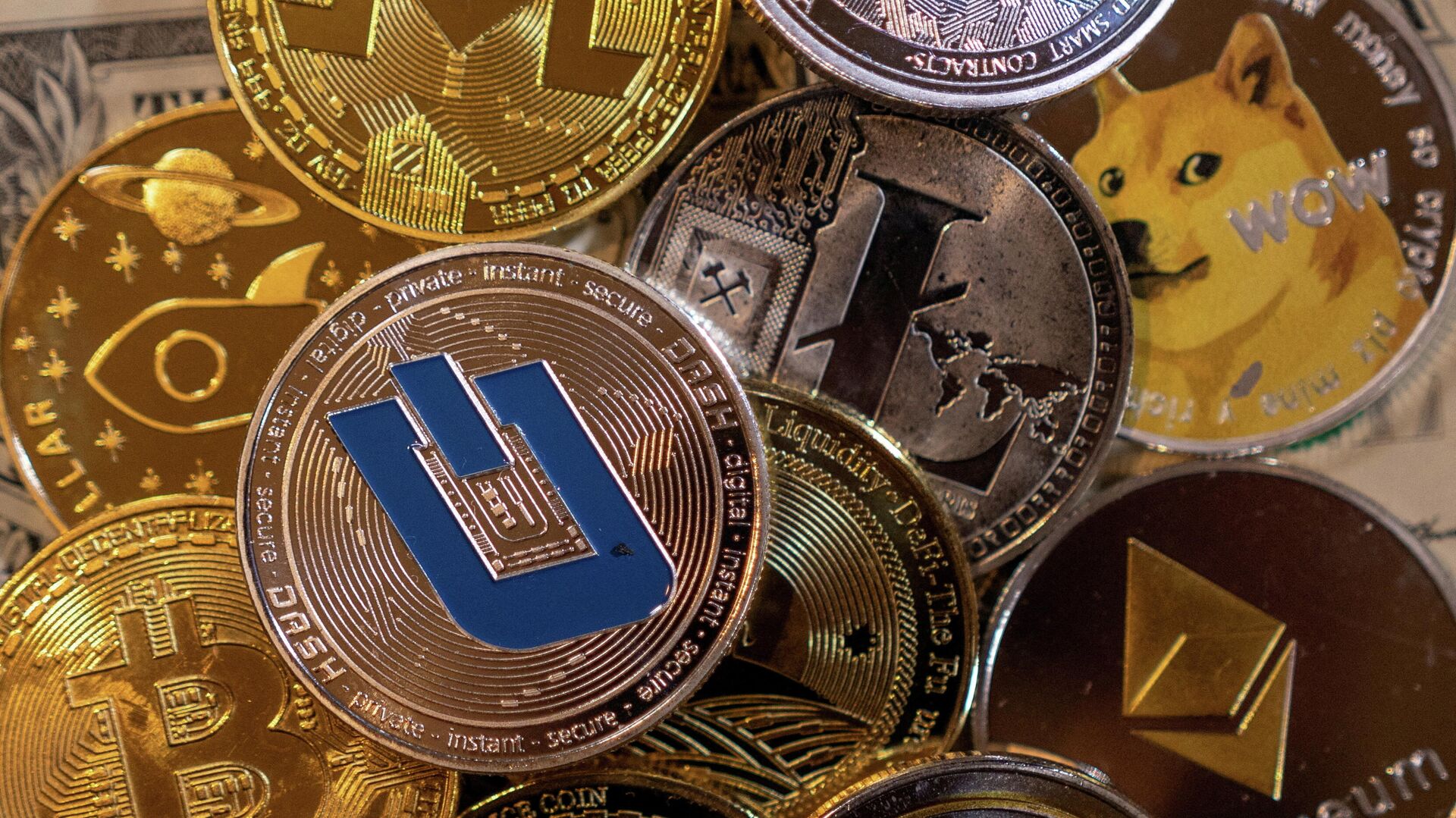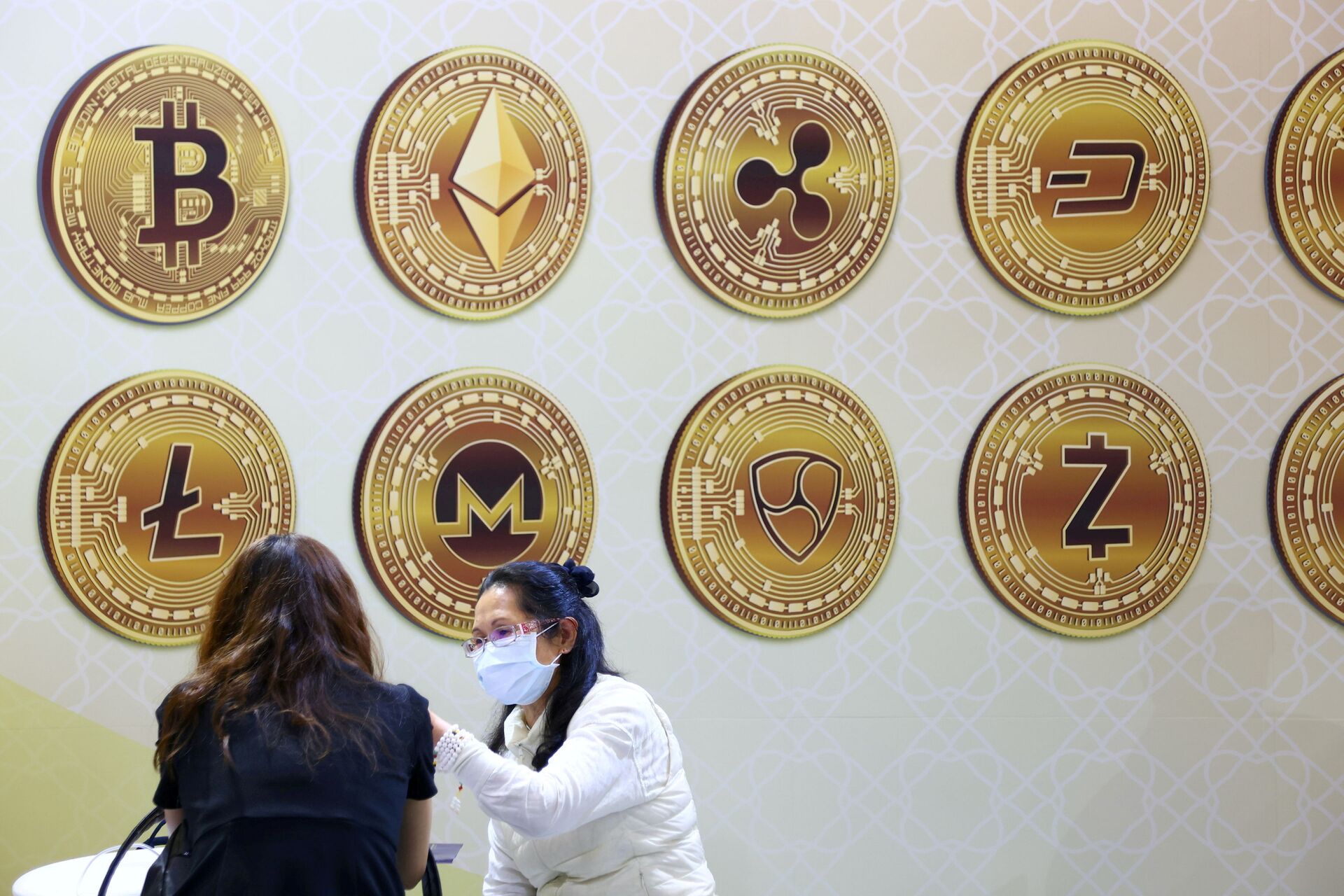https://sputnikglobe.com/20220129/expert-central-banks-join-virtual-gold-rush-to-keep-up-with-rising-crypto-1092599021.html
Expert: Central Banks Join Virtual Gold Rush to Keep Up With Rising Crypto
Expert: Central Banks Join Virtual Gold Rush to Keep Up With Rising Crypto
Sputnik International
BRUSSELS (Sputnik) - Central banks have been pressured to digitize conventional currencies after the cryptocurrency boom paved the way for an ever-growing... 29.01.2022, Sputnik International
2022-01-29T04:19+0000
2022-01-29T04:19+0000
2022-01-29T04:19+0000
cryptocurrency
crypto market
crypto
https://cdn1.img.sputnikglobe.com/img/07e6/01/0d/1092240412_0:7:3325:1877_1920x0_80_0_0_8cf03564976c1a8cadc1c0a7f208d90b.jpg
Larue, who formerly lectured on cryptocurrencies and collaborative currencies at UCLouvain university in Brussels, said central banks and states do not want to be overtaken by a technology that they have no control over.The Swedish central bank is a frontrunner, with the European Central Bank following suit to develop a digital euro, Larue said, although the ECB does not plan to deploy the digital euro before 2025 or replace banknotes and coins. Even "stablecoins", which are assets backed by the dollar or the euro, must be strictly regulated, according to the ECB.Once considered a fringe asset aimed at computer geeks, digital tokens like Bitcoin and Ether have been gaining popularity among ordinary investors. The UK government estimated in January that some 2.3 million people in the country owned at least one, but research suggested users did not always understand what they were buying.He said crypto-associated risks varied from those for users who are exposed to fraud, hacking and theft, to risks of speculation on out-of-control cryptomarkets, and of criminals using untraceable digital coins in extortion schemes. For example, Maastricht University recently saw its computer network blocked by hackers, who demanded a ransom, which the university paid in Bitcoin.Cryptocurrency markets are not regulated like stock exchanges. In a classic market, the market authority can close trading in a stock that shows too much speculative rise or fall, while on cryptomarkets platforms can be set up to launch an operation to reap a huge immediate and unjustified profit.Tax evasion, on the contrary, does not seem like an important vector compared to simpler and more traditional ways of dodging taxes, such as front companies and tax havens, Larue said. Criminal activity in cryptocurrencies would represent much less than 1% of transactions, he estimated.
Sputnik International
feedback@sputniknews.com
+74956456601
MIA „Rossiya Segodnya“
2022
Sputnik International
feedback@sputniknews.com
+74956456601
MIA „Rossiya Segodnya“
News
en_EN
Sputnik International
feedback@sputniknews.com
+74956456601
MIA „Rossiya Segodnya“
Sputnik International
feedback@sputniknews.com
+74956456601
MIA „Rossiya Segodnya“
cryptocurrency, crypto market, crypto
cryptocurrency, crypto market, crypto
Expert: Central Banks Join Virtual Gold Rush to Keep Up With Rising Crypto
BRUSSELS (Sputnik) - Central banks have been pressured to digitize conventional currencies after the cryptocurrency boom paved the way for an ever-growing interest in decentralized banking, Louis Larue, an economic professor and a researcher at the University of Gothenburg, told Sputnik.
"Central banks are under pressure from their customers, the major commercial banks, to digitise major currencies. Studies are underway on the best way to compete with cryptocurrencies," he said.
Larue, who formerly lectured on cryptocurrencies and collaborative currencies at UCLouvain university in Brussels, said central banks and states do not want to be overtaken by a technology that they have no control over.
The Swedish central bank is a frontrunner, with the European Central Bank following suit to develop a digital euro, Larue said, although the ECB does not plan to
deploy the digital euro before 2025 or replace banknotes and coins. Even "stablecoins", which are assets backed by the dollar or the euro, must be strictly regulated, according to the ECB.
"Authorities generally do not consider cryptocurrencies to be real currencies. For Christine Lagarde, president of the ECB, cryptocurrencies are very speculative assets, occasionally suspect and with high energy consumption (which is bad for the climate), which mainly feed the dark web," the expert continued.
Once considered a fringe asset aimed at computer geeks, digital tokens like Bitcoin and Ether have been gaining popularity among ordinary investors. The UK government estimated in January that some
2.3 million people in the country owned at least one, but research suggested users did not always understand what they were buying.
"Investors who buy them take a risk, given the volatility of these cryptocurrencies. There are very few protections against fraud, so it is a dangerous investment. There is unanimity on the need to better regulate this very speculative market," Larue said.
He said crypto-associated risks varied from those for users who are exposed to fraud, hacking and theft, to risks of speculation on out-of-control cryptomarkets, and of criminals using untraceable digital coins in extortion schemes. For example, Maastricht University recently saw its computer network blocked by hackers, who demanded a ransom, which the university paid in Bitcoin.
Cryptocurrency markets are not regulated like stock exchanges. In a classic market, the market authority can close trading in a stock that shows too much
speculative rise or fall, while on cryptomarkets platforms can be set up to launch an operation to reap a huge immediate and unjustified profit.
Tax evasion, on the contrary, does not seem like an important vector compared to simpler and more traditional ways of dodging taxes, such as front companies and tax havens, Larue said. Criminal activity in cryptocurrencies would represent much less than 1% of transactions, he estimated.


